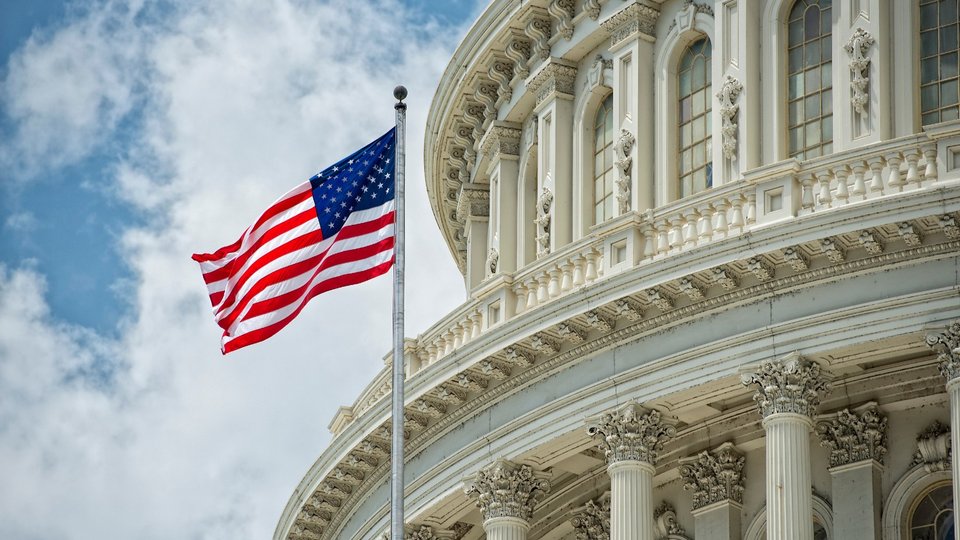Payments
Move over crypto: cash legislation is coming to Congress
While crypto bills have taken up the headlines, two big cash bills are back on the agenda: the Payment Choice Act and Secure Access to Cash Act.

August 19, 2025 by Bradley Cooper — Editor, ATM Marketplace & Food Truck Operator
While crypto legislation has gotten big headlines recently, cash bills have quietly resurfaced in Congress.
Two bills promoting cash usage and ATM security have been reintroduced to Congress: the Payment Choice Act and the Secure Access to Cash Act. This is in large part due to the efforts of the National ATM Council, which recently held its ATMs go to Washington event, where the industry travels down to D.C. to speak with lawmakers about legal issues surrounding ATMs and cash access.
Two big bills
The Payment Choice Acthas been introduced and reintroduced multiple times over the past couple of years, but the primary goal has been the same: protect cash usage as a payment option.
The Secure Access to Cash Act, on the other hand, aims to close loopholes in ATM crime that don't afford the same protection banks get to ATMs both owned by independent ATM deployers and off-premises bank owned ATMs.
These bills have both made a comeback, with the Payment Choice Act being sponsored in the Senate by Democrat Sen. John Fetterman and Republican Sen. Kevin Cramer.
The goal of this bill over the years has been the same: to protect cash usage in the fact of a push towards cashless. The major concern has been that retailers adopting cashless will lead to the financially underserved and underbanked being left out.
"It's simple: if you're open for business in America, you should take U.S. dollars," Sen. Fetterman said in a press release. "I'm proud to introduce the bipartisan Payment Choice Act with Senator Cramer because every American should be able to use paper currency if they choose. We have millions of people in this country who don't have access to bank accounts, and they must be able to go shopping with their hard-earned dollars."
"Cash is still legal tender in the United States, despite some businesses' exclusive acceptance of electronic payments," Sen. Cramer, said in the release. "Forcing the use of credit and debit cards or imposing premium prices on goods and services paid for with cash limits consumer choice. Americans should have the option of using cards or cash, but they should be the ones who make that choice."
Here are a few key details from the bill:
- Retailers and businesses that accept payments for telephone, mail or online transactions at physical locations must accept cash up to $500.
- They may not charge a higher price for cash.
- Businesses must provide a fee-free device to convert cash into a prepaid card if they cannot accept cash directly.
- Businesses do not have to accept cash payments in $50 or larger bills.
History and importance
In previous years, the Payment Choice Act has been passed through the House but got shut down in the Senate.
Bruce Renard, national director of the National ATM Council, said that it was included in the National Defense Authorization Act.
"It was taken out of the bill because one senator objected to it, Sen. Toomey of Massachusetts. He would later leave the Senate to go work for crypto," Renard said in a phone interview.
Renard pointed to the importance of this bill as a national defense manner, in light of national or local emergencies where a payment system is knocked out and cash is the only available means of currency, such a major electromagnetic pulse attack.
"EMP weapons would fry payment infrastructure and shut down all forms of payment but cash, so it's a national security matter we keep our cash ecosystem functional, so our commerce can continue in a national emergency just like it does today in a localized emergency like a hurricane or tornado."
Can it pass?
In the current Congress the 119th, the National ATM Council has been able to secure a number of sponsors in the House and Senate for these two bills including Congressmen John Rose, Glenn Ivey and Scott Fitzgerald for the Safe Access to Cash Act and Sen. John Rose and Sen. Mark Meek.
Renard noted in their meetings with representatives that they received nearly no pushback for the Safe Access to Cash Act.
He said that although some are resistant to expanding any type of federal crime legislation, "We heard little to none about this issue due to how compelling and how serious the crime wave is."
As a result, Renard said he is mot confident about that bill getting passed, especially because it was introduced so early on in the 119th Congress. Also some representatives mentioned the possibility of adding it to a consent calendar if there are no objections in the House or Senate to passing it.
In the case of the Payment Choice Act, he said that one might prove more challenging due to resistance to imposing regulations on businesses.
In their meetings, Renard said the Council tried to emphasize the purpose of the act is not to force businesses to only accept cash but rather to make it an option.
"It's about consumer choice," Renard said.
Currently, he said the best chance for both bills to be passed is to be included in larger bill packages of things that Congress must complete such as the National Transportation Act, Highway Act or National Defense Act.
What about crypto?
As mentioned above, cryptocurrency has played a big role in Congress with the passage of the GENIUS Act, which has been signed into law, and two others which have been sent to the Senate: the CLARITY Act and Anti-CBDC Surveillance State Act.
The CLARITY Act establishes a few guidelines for which agencies regulate cryptocurrency businesses while the Anti-CBDC Act has major implications for the ATM industry as well.
This act aims to ban the Federal Reserve from designing and implementing a central bank digital currency. Renard said a CBDC could have major consequences for physical cash if the Fed decided to phase out cash in favor of digital currency.
"Neither the crypto nor the ATM industry want to see a U.S. digital dollar."
Debanking?
Lastly, Renard mentioned one other legislative push that has relevance to ATM operators: debanking.
Currently there is a push from Republicans to prevent debanking when financial institutions refuse or terminate banking relationships with figures engaged in "controversial or politically sensitive" activities according to GreenbergTraurig Law.
Renard said this is of relevance to independent ATM deployers as they often struggle with gaining banking relationships due to concerns over risk from the sheer amount of cash handled.
However, unlike the other two bills, Renard is less confident about debanking making much headway due to it being such a partisan issue.
On Aug. 7, Trump did sign an executive order banning debanking based on political affiliation. However, nothing has passed Congress yet.
What's next?
Renard said the most important step is for industry members to contact their local representatives to ask them to pass the bill.
By applying pressure to representatives in this way, the ATM industry can help keep these bills top of mind.
 ChatGPT
ChatGPT Grok
Grok Perplexity
Perplexity Claude
Claude












